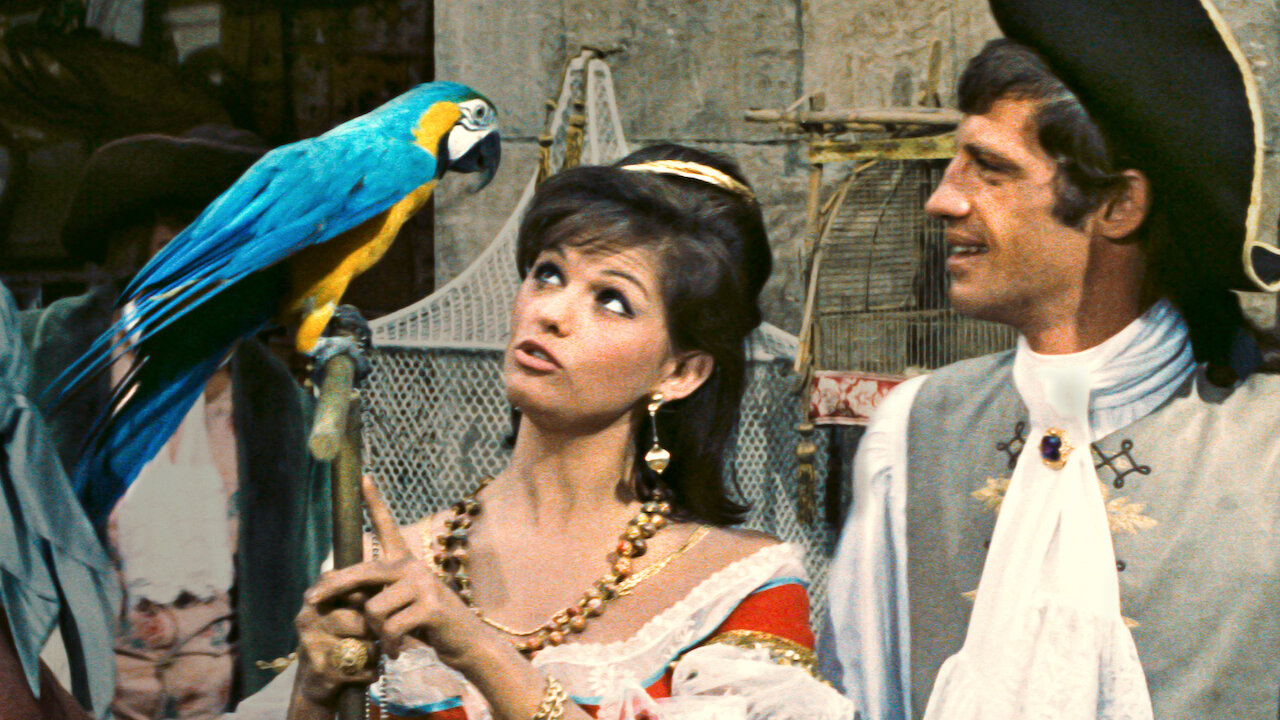« The Woman One Longs For | Main | The Serpent »
June 08, 2021
Cartouche

Philippe de Broca - 1962
KL Studio Classics BD Region A
I had seen Cartouche twice previously, but also decided to revisit some other films by de Broca made around the same time. A small sequence that particularly struck me is when Cartouche, dodging the law in Paris, joins the army. The film takes place during the early 18th Century period in France known as the Regence. Cartouche and his two friends are caught in a battle, hiding from the the slaughter, and being declared heroes after staggering back to the fort. The reward for the men's supposed gallantry is to be on the front line of the next battle. The battle scene and the treatment of the soldiers portray the absurdity of war, and anticipate de Broca's best known film, King of Hearts.
Cartouche was inspired by the real life highwayman, Louis Dominique Garthausen, also known as Cartouche. As played by Jean-Paul Belmondo, Cartouche is introduced as a very talented pickpocket. The various criminals of Paris are under the control of Malichot, who takes most of the loot for himself. Returning from the army, after stealing the army cashbox, Cartouche takes on Malichot. The underworld gang is transformed into an army that shares the ill-gotten gains, but also has a code of honor of only stealing from the rich. In the course of his adventures, Cartouche rescues Venus, a young woman arrested for the theft of a silk kerchief.
One of de Broca's other themes, also in other films, is the question of spiritual loss with material gain. Cartouche has wealth and the adoration of Venus. In spite of declaring himself married to Venus, Cartouche is seen flirting with another woman. His seduction of an aristocrat's wife almost brings about his end. For some of the men in de Broca's films, it takes the loss of everything to recognize the value of what they have.
Cartouche was the first of five films de Broca made with Jean-Paul Belmondo. Each film was a comic adventure pairing the star with a top actress. This may well be the best of the five in part because of it being a period film, unlike the other four which were in contemporary settings, with certain aspects aging badly. Cartouche set the pace for Belmondo not only doing very physically demanding slapstick comedy, but also horse riding, sword fighting, shooting and assorted fisticuffs. Claudia Cardinale has the star-making role as Venus, whose biggest weapon may be her broad smile flashing both rows of teeth. While Cardinale is mainly associated with Italian films, French is her first language, so I am assuming that is her voice on the soundtrack.
The blu-ray comes with a documentary on de Broca that alternates between wife Alexandra de Broca and French journalist Thomas Morales. Mme. de Broca discusses how Cartouche came about when plans to film a new version of The Three Musketeers were cancelled, and how the film was a leap for the the still relatively new director. Morales makes the point of positioning de Broca as a link between the Nouvelle Vague and the more classic style of filmmaking. I do think his dismissal of Claudia Cardinale as a serious actress is nonsensical in light of her work with Fellini, Visconti, among others. One of the more interesting points in Simon Abrams' commentary is how the reception for Cartouche in the U.S. was muted by its belated release following The Man from Rio (1964) by one month, with critics expecting another totally comic film.
Georges Delerue's music for Cartouche quite appropriately evokes music of the era, Handel comes to mind. There is one scene when Cartouche is waiting for an expected liaison with the aristocrat's wife, the woman he flirts with at the beginning of the film. The music struck me as an initial attempt at what would be more fully developed as the romantic theme for Godard's Contempt.
Posted by Peter Nellhaus at June 8, 2021 06:51 AM
